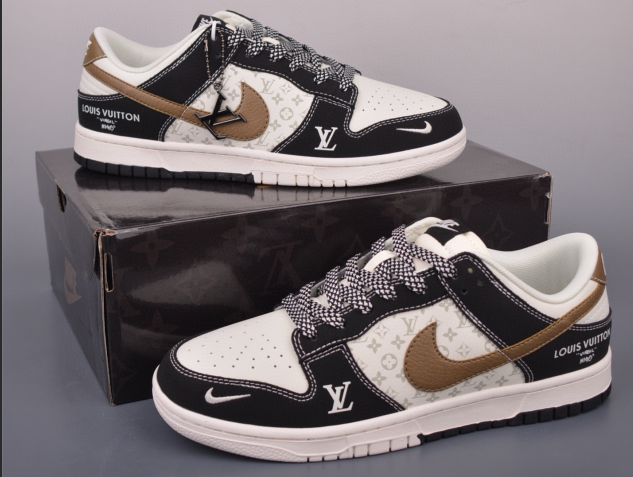Are Vegan Basketball Shoes Available on the Market?
In recent years, the global shift toward sustainability, ethical consumerism, and animal welfare has significantly influenced various industries—including fashion and athletic footwear. One of the most notable developments in this space is the growing availability of vegan products across all categories, from food to clothing and even performance gear. Among these innovations, vegan basketball shoes have emerged as a compelling option for athletes, environmentally conscious consumers, and animal rights advocates alike. But are vegan basketball shoes truly available on the market today? The answer is a resounding yes—and not only are they accessible, but they are also increasingly competitive in terms of performance, durability, and style.
To understand the significance of vegan basketball shoes, it’s essential first to define what “vegan” means in the context of footwear. A vegan shoe is one that contains no animal-derived materials. This excludes traditional components such as leather (made from cowhide), suede (from lamb, goat, or calf skin), wool, silk, and certain glues that may contain animal byproducts. Instead, vegan basketball shoes are constructed using synthetic or plant-based alternatives like polyurethane (PU), microfiber, recycled plastics, rubber, canvas, and innovative bio-based materials derived from sources such as corn, algae, or pineapple fibers (e.g., Piñatex).
Historically, basketball shoes were predominantly made with leather due to its durability, support, and premium aesthetic. Major brands like Nike, Adidas, and Reebok long relied on full-grain or synthetic-leather uppers in their signature basketball models. However, as consumer demand for cruelty-free and eco-friendly options grew, manufacturers began re-evaluating their material choices. This shift was further accelerated by advancements in material science, which enabled the creation of high-performance synthetics that could rival—or even surpass—traditional leather in key areas such as breathability, flexibility, and weight.
Today, numerous brands offer fully vegan basketball shoes, either as part of their standard product lines or through dedicated sustainable collections. For example, Puma has been a leader in this space with its Court Respective Pro and Clyde All-Pro models, both of which are explicitly marketed as vegan and designed for high-level court performance. These shoes use synthetic uppers, recycled textiles, and non-animal adhesives while maintaining excellent traction, cushioning, and ankle support.
Similarly, Adidas has expanded its Parley collection, which uses ocean plastic waste to create performance footwear, including basketball models like the Dame Certified. While not every version of the Dame line is vegan, several iterations avoid animal materials altogether, particularly those labeled as “synthetic upper.” Moreover, Adidas has committed to phasing out virgin polyester and reducing its environmental footprint across all product lines by 2025, indicating a broader corporate move toward sustainability and inclusivity—values closely aligned with vegan principles.
Nike, the world’s largest athletic footwear brand, has also responded to the demand for vegan options. While many of Nike’s basketball shoes still incorporate leather, an increasing number are made entirely from synthetic materials. Models such as the Nike Precision series, Nike Air Max Impact, and certain versions of the LeBron Witness line feature mesh, engineered synthetics, and rubber compounds free from animal inputs. Importantly, Nike does not always label these shoes as “vegan,” so consumers must carefully examine product descriptions and material lists to ensure compliance with vegan standards. Nevertheless, the abundance of leather-free basketball sneakers in Nike’s catalog demonstrates that vegan performance footwear is not only possible but already mainstream.
Beyond the major sportswear giants, a wave of niche and independent brands has emerged with a primary focus on ethical and sustainable design. Brands like Rens, Vivobarefoot, and Cariuma produce minimalist, eco-conscious footwear, some of which are suitable for casual or recreational basketball play. While these may not be tailored for elite athletes, they represent important innovation in material development and serve as proof-of-concept for a future where high-performance vegan footwear is the norm rather than the exception.
One of the common misconceptions about vegan basketball shoes is that they lack the durability or structural integrity needed for intense gameplay. However, modern synthetic materials have closed this gap significantly. High-density mesh fabrics can provide excellent ventilation and lateral support, while advanced foams like Boost (Adidas) or Zoom Air (Nike) deliver responsive cushioning without relying on animal products. Additionally, vulcanized or blown rubber outsoles—standard in most basketball shoes—are inherently vegan and offer superior grip and abrasion resistance.
Another advantage of vegan basketball shoes lies in their environmental impact. The production of animal leather is resource-intensive, requiring vast amounts of water, energy, and land, while also contributing to deforestation and greenhouse gas emissions. Tanning processes often involve toxic chemicals like chromium, which can pollute waterways and harm workers. In contrast, many vegan materials are produced with lower carbon footprints and reduced ecological damage, especially when made from recycled or renewable sources.
Of course, challenges remain. Not all synthetic materials are biodegradable, and some petroleum-based plastics contribute to microplastic pollution. However, ongoing research into bio-fabricated leathers, mushroom-based textiles (like Mylo), and algae-infused foams promises to make future vegan shoes even more sustainable.
In conclusion, vegan basketball shoes are not only available on the market—they are thriving. From professional-grade models by industry leaders to innovative designs by eco-startups, consumers now have a wide array of stylish, high-performance, and ethically sound options. As technology advances and public awareness grows, the distinction between “vegan” and “conventional” athletic footwear will continue to blur, paving the way for a more compassionate and sustainable future in sports. Whether you’re a competitive player, a weekend enthusiast, or simply someone who values cruelty-free living, there has never been a better time to step onto the court in a pair of vegan basketball shoes.
